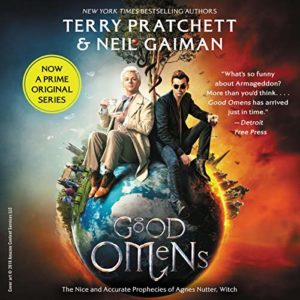 I first read Good Omens while I was in college, I reckon, based on recommendation and the brand recognition of one Terry Pratchett. So, years before I’d read Sandman or otherwise knew anything about one Neil Gaiman. Finding it now, of course, I would be ecstatic about the collaboration between two such giants, with possibly Gaiman tilting the scale even more?
I first read Good Omens while I was in college, I reckon, based on recommendation and the brand recognition of one Terry Pratchett. So, years before I’d read Sandman or otherwise knew anything about one Neil Gaiman. Finding it now, of course, I would be ecstatic about the collaboration between two such giants, with possibly Gaiman tilting the scale even more?
Anyway, though, I think I only read it the once, which is to say 25 years ago[1], so once I recently learned there was a television adaptation, well. I think I saw all of the first episode rather than part? But for sure no more than that before I acknowledged that I would probably get more out of the show with familiarity, and anyway I had recently finished my current Malazan listen and was in the middle of a Hobb trilogy, which made it impossible to read the next physical book in the Malazan world anytime soon, so hey, time to switch audiobooks to something immediately useful!
“Immediately.” Ha.
Because, you see, a bit over halfway through this fairly short book (12 and a half hours), I no longer had a daily commute. Or much reason to drive literally anywhere at all, but especially in the car by myself. (Good god, my podcasting queue has swelled.) This is probably the least meaningful side-effect of Covid (to me personally I mean, much less to you who reads these words), but it doesn’t stop it being annoying.
But all that to say, I finished the damn book finally, and I do have a handful of scattered thoughts:
- Although clearly dated from a technological perspective, the story is otherwise still more timely than not. One supposes that this will always be true of the apocalypse?
- The casting of David Tennant as Crowley was an inspired choice. Having just heard the book, I can backfill him into my mental image at any moment and he works perfectly.
- The narration, as almost always since I started listening to these, was a) mostly excellent with the caveat that b) the producer or director or sound engineer or whoever makes the choice to edit out pauses needs to be given a crash course in how books are presented. It is always a good idea to let the reader know that a tonal shift of some kind has occurred, whether it be change of viewpoint character, narrator, or scene. Just a second’s pause to let us know something changed. Why is this so hard?
- I wish I had a good way to know who wrote what. My instinct is to assign plot to Gaiman[2], humor to Pratchett, with biting social commentary split between them. But of course I have no way to really know.
- That said: the four other horsemen subplot goes ultimately nowhere at all and accomplishes nothing except humor, but not nearly enough of that to justify its existence. So I wish I knew who to blame there.
Anyway, it’s a good to occasionally great book, even thirty years after publication, and I’m pretty excited to watch the adaptation now. Six episodes, which seems like plenty enough? We’ll see! …well, I will anyway. It’s not like I’ll eventually report back or anything.
[1] goddammit
[2] This is not a shot at Pratchett’s plotting, nor is the other a shot at Gaiman’s humor. It’s just that it does feel like a Gaiman-style plot overall, and also he does not focus on things being specifically funny, in the general sense.
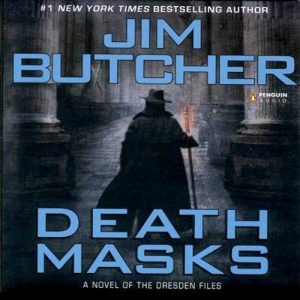 So, uh, massive spoilers for not so much this book but for the entire series through Peace Talks, which is not yet published as of this review. Don’t read farther unless you don’t mind.
So, uh, massive spoilers for not so much this book but for the entire series through Peace Talks, which is not yet published as of this review. Don’t read farther unless you don’t mind.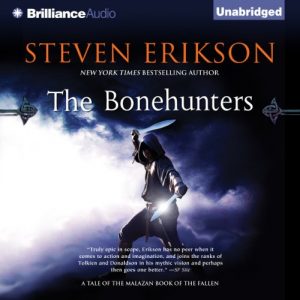 Jesus, I read
Jesus, I read 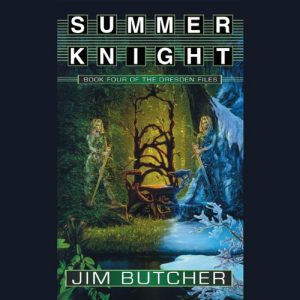 I am shocked to see that we finished listening to the last Dresden Files book less than six month ago. It really seems much longer ago. Which means that yay, still accomplishing something here. Anyway: as usual, the first and most important part of
I am shocked to see that we finished listening to the last Dresden Files book less than six month ago. It really seems much longer ago. Which means that yay, still accomplishing something here. Anyway: as usual, the first and most important part of 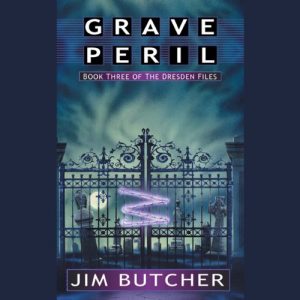 Last week / weekend was a big driving vacation (let’s say) to GenCon. Which was cool and completely exhausting but I think pretty cool, but I’m really disappointed that I never managed to do anything much towards getting in on any games. I will be a little choosier about getting involved with something on the next con with signups that I go to. (Which is probably most of them, but not so much BGG.)
Last week / weekend was a big driving vacation (let’s say) to GenCon. Which was cool and completely exhausting but I think pretty cool, but I’m really disappointed that I never managed to do anything much towards getting in on any games. I will be a little choosier about getting involved with something on the next con with signups that I go to. (Which is probably most of them, but not so much BGG.) Meanwhile, another Audible dramatic presentation, because that’s a thing I do now? It’s not really my fault, both of these were monthly freebie giveaways, and I still haven’t finished the Malazan side book I’m reading, due mostly to the previously mentioned horror show that is my professional life. Although to be fair, I would have spent a hard-earned credit on this one.
Meanwhile, another Audible dramatic presentation, because that’s a thing I do now? It’s not really my fault, both of these were monthly freebie giveaways, and I still haven’t finished the Malazan side book I’m reading, due mostly to the previously mentioned horror show that is my professional life. Although to be fair, I would have spent a hard-earned credit on this one.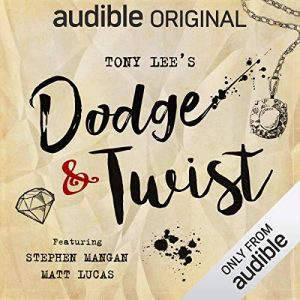 To be honest, I’m not even sure
To be honest, I’m not even sure 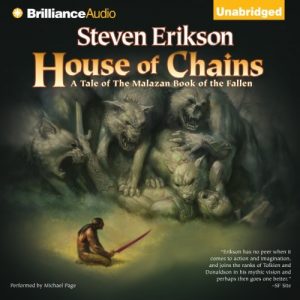 It is hard to believe that
It is hard to believe that 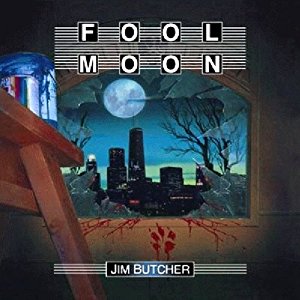 I wish I could say I am horribly backlogged. That would be amazing next to the reality, which is that I just haven’t been doing much of anything. Too busy at work, too busy fighting with my broken comics collection, too busy watching TV. I mean, I’ve done other things in there I’m happy about, but finished books and new movies are not among them.
I wish I could say I am horribly backlogged. That would be amazing next to the reality, which is that I just haven’t been doing much of anything. Too busy at work, too busy fighting with my broken comics collection, too busy watching TV. I mean, I’ve done other things in there I’m happy about, but finished books and new movies are not among them.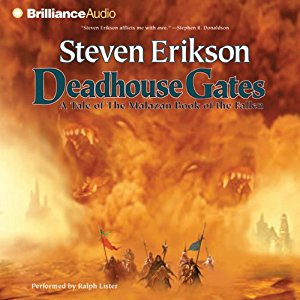 It has been a stupidly long time since I finished listening to
It has been a stupidly long time since I finished listening to